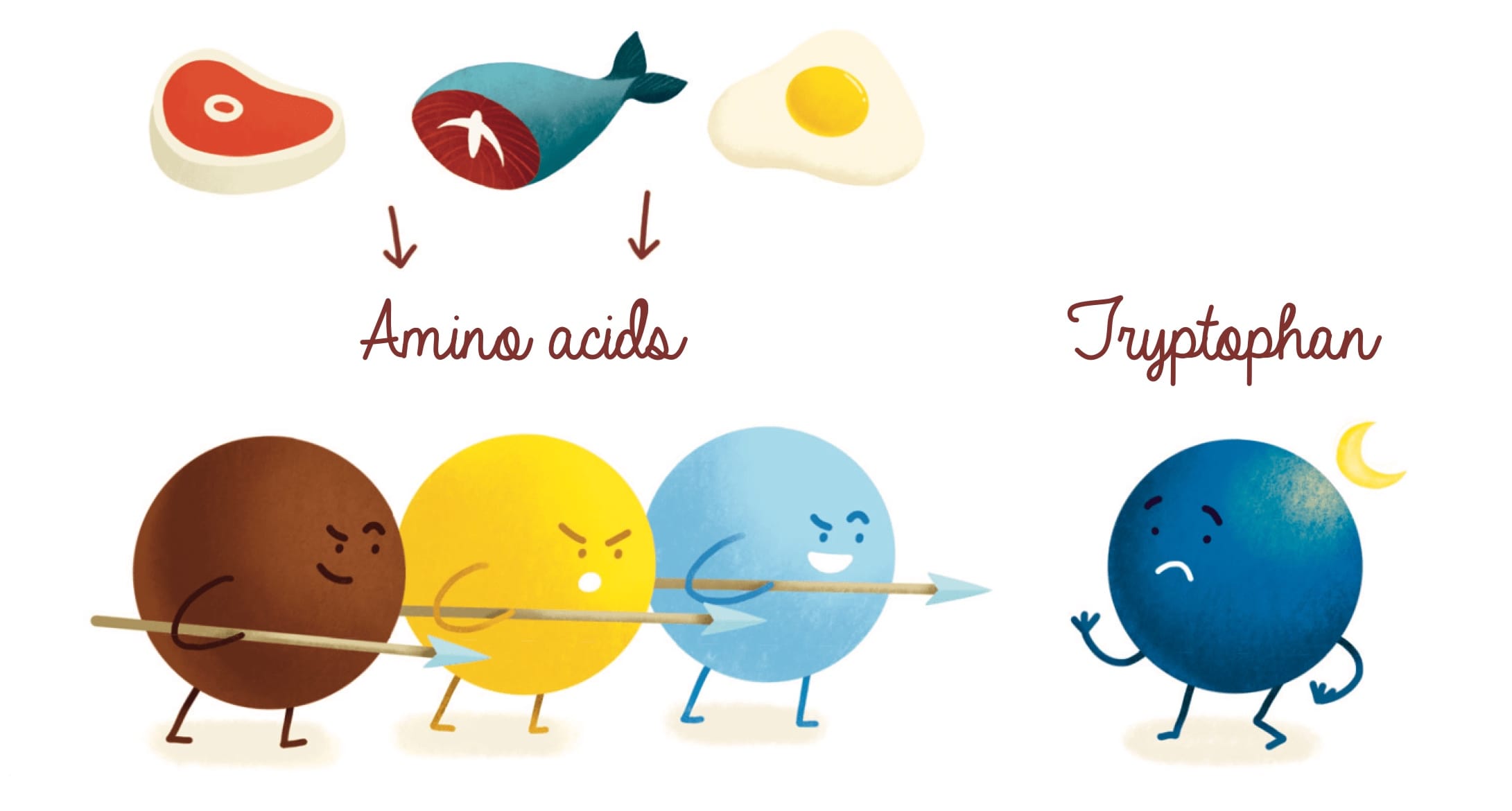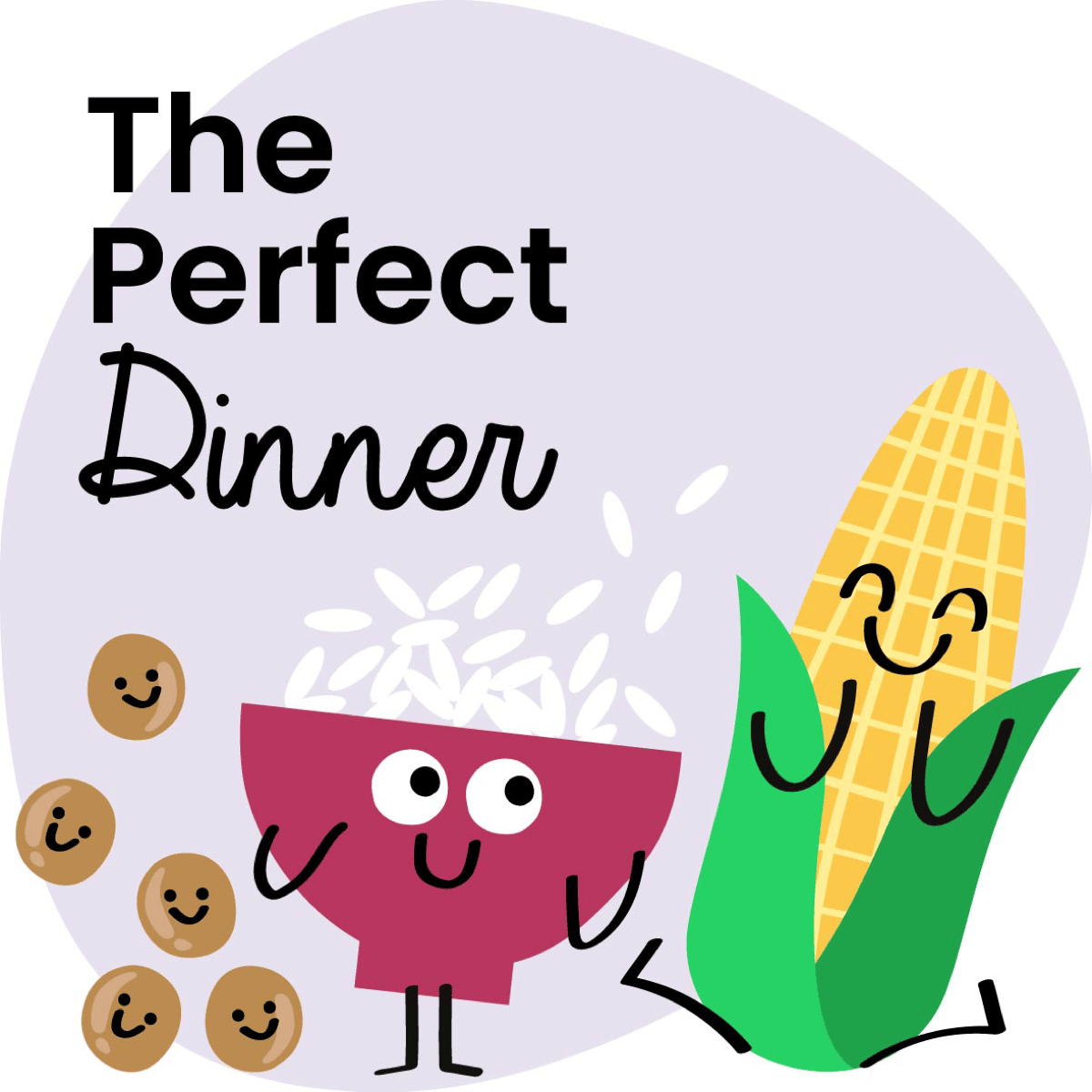Our animal protein consumption is out of balance. We do not eat enough at breakfast, but we consume far too much at dinner, which interferes with sleep. Indeed, animal protein stimulates alertness and motivation, which is great in the morning, but not so much at night.
Thus, it is recommended that you enjoy a vegetarian dinner, meaning no meat or fish. This type of meal will help calm the body and pave the way for good sleep.
1 – Plant-based protein
In the evening, you should opt for plant-based protein rather than animal protein. Animal protein promotes the production of dopamine, a neurotransmitter that stimulates the mind and jump-starts your motivation to tackle the day. While it is perfect in the morning to rev you up, at night the body needs serotonin, a neurotransmitter that is responsible for soothing and sleep regulation.
Serotonin is made from tryptophan, an amino acid found in plant-based protein, such as legumes, soy, brown rice, sunflower seeds and chocolate. This is why it is important to eat plant-based protein in the evening, especially because animal protein contains amino acids that compete with tryptophan and slow down its journey to the brain. As a result, it is not fully absorbed, which interferes with serotonin production and, therefore, sleep.

Furthermore, animal protein and fats (particularly when cooked) overburden your body at night. Foods that are high in animal protein and fat contain molecules that can take a long time to digest because they have to be cut up for digestion. This requires a lot of energy from the body and generates heat. And at night, the body temperature needs to come down to encourage sleep.
When you sleep, your body is in a horizontal position, but optimal digestion occurs when you are in a vertical position so the food can descend into your intestines. That is why it is recommended that you have dinner at least three hours before going to sleep, as the liver needs to work for one to three hours to digest.
2 – Foods that promote restful sleep
Some foods encourage serotonin production and tryptophan absorption, which optimizes sleep quality:
 | Walnuts and almonds. |
 | Yogurt and cheese. |
 | Carbohydrates (whole grains and fruits). |
3 – Vegetables
Vegetables should make up at least one-third of your dinner. They supply fiber, which promotes satiety and prevents snacking after dinner (see our article on fiber). Vegetables are especially important to combat hunger by compensating for the lack of animal protein at night. They also provide vitamins and minerals.
Plus, vegetables promote digestion and regularity to reduce bloating, flatulence and stomach aches
that can also interfere with sleep quality. If you have sensitivities, choose cooked vegetables because they are easier to digest than raw veggies.
Season your vegetables with one or two tablespoons of an oil rich in omega-3, such as canola oil, walnut oil or camelina oil.
The perfect dinner
In the evening, try to build a plate that has:
- 50% vegetables
- 50% legumes and/or whole grains. Compose your dinner based on what you had for lunch to maintain a varied diet.
If you need a dessert, the best bet is a fruit or a plain, unsweetened yogurt.
Finally, if you are still hungry, have a few nuts (ideally walnuts or almonds).
- Friedman M. Analysis, Nutrition, and Health Benefits of Tryptophan. Int J Tryptophan Res. 2018;11:1178646918802282. Published 2018 Sep 26. doi:10.1177/1178646918802282
- Jenkins TA, Nguyen JC, Polglaze KE, Bertrand PP. Influence of Tryptophan and Serotonin on Mood and Cognition with a Possible Role of the Gut-Brain Axis. Nutrients. 2016;8(1):56. Published 2016 Jan 20. doi:10.3390/nu8010056
- Troynikov O, Watson CG, Nawaz N. Sleep environments and sleep physiology: A review. J Therm Biol. 2018 Dec;78:192-203. doi:10.1016/j.jtherbio.2018.09.012.Epub 2018 Oct 5. Review. PubMed PMID: 30509635.





